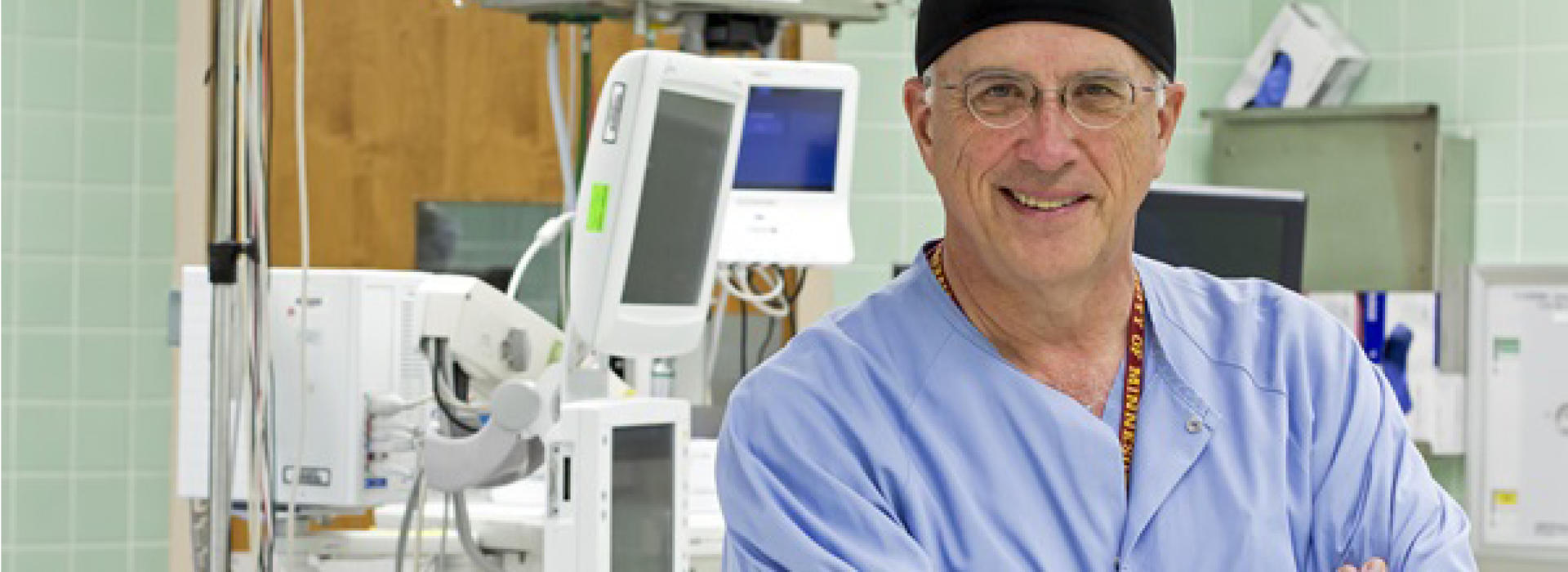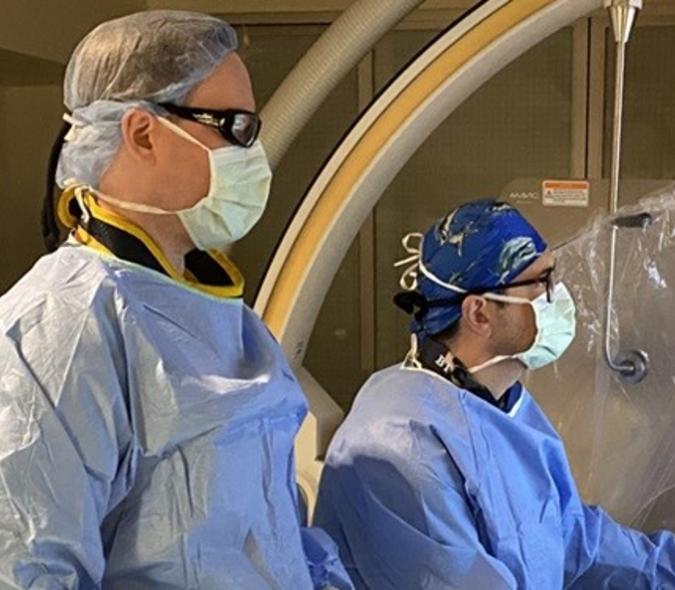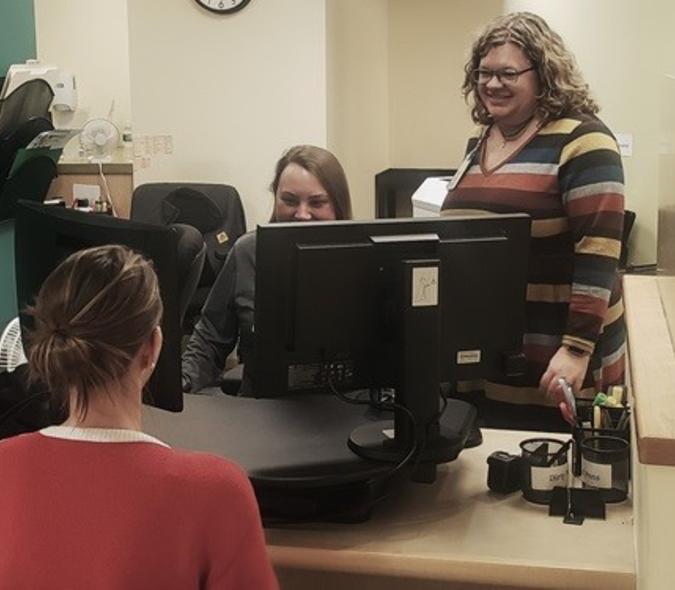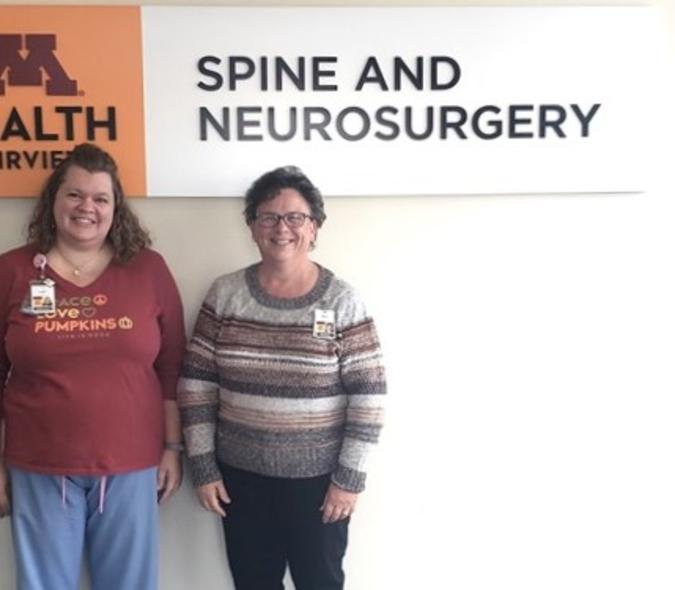
Neurosurgical Society of America Recognizes UMN Medical School Faculty Member’s Lifetime Contribution to Improving Neurosurgery
Neurosurgery Department Professor Stephen Haines, MD, was honored during the recent Annual Meeting of the Neurosurgical Society of America (NSA) held in Banff in Alberta, Canada. He was given the prestigious NSA Medal, which is awarded to “an individual who, in the opinion of the membership, most significantly influenced the clinical practice of neurosurgery through personal achievement,” according to award presentation documents.
Haines is the second member of the University of Minnesota Neurosurgery Department at the University of Minnesota Medical School to be given this honor. Department Head Lyle A. French, MD, PhD, was awarded the medal in 2004.
“About 20 years ago,” Haines explained, “the Society created this medal to honor someone who they felt had made a significant contribution to the practice of neurosurgery rather than to just the science.” He added that the medal isn’t restricted to members of the Society. “It’s available to anyone in the world,” Haines said. “In 2013, for example, it was given to NFL Commissioner Roger Goodell because of the actions he was taking regarding chronic traumatic injuries in his sport.”
A fiercely humble man who was genuinely surprised to win the award, Haines said he felt he needed to explain himself during his acceptance speech. “It’s hard to know if what I’ve been trying to do to advance neurosurgery throughout my career could be this recognizable,” he said to the audience. “I haven’t invented a new procedure that works really well. I haven’t done great basic science research. I haven’t patented a device that everyone uses. My emphasis has been on a consistent effort to elevate the quality of clinical research across the board.”
“It was incredibly gratifying to see Dr. Haines honored,” noted Neurosurgery Department colleague Matthew Hunt, MD, who was in the audience. “He has done more to advance the science of knowledge in the field of neurosurgery than just about anyone else.”
Haines came by his passion for research quality before he even became a neurosurgeon. “In freshman year in college, I was introduced to the concepts of quantitative sociology, which was very unusual for an introductory course,” he said. “When I went to medical school, one of my professors was Dr. Larry Weed, who invented the problem-oriented medical record.” Weed reorganized the structure of the medical record from being divided into the different sources for patient records (x-rays, prescriptions, physician notes) to one structured around a well-defined list of a patient's medical problems.
“What I began to understand from those two experiences was that the information we collected about the clinical practice of neurosurgery was more like sociological data, such as income and gender, than scientific data, such as the milliequivalents of sodium that crossed certain membranes,” Haines explained. “And the methods of analysis were different for each kind of information. Neurosurgery hadn’t tumbled to that.”
This realization led to Haines’ interest in randomized clinical trials. “There were no degrees in clinical epidemiology or clinical research like we have now,” he said. “When I won the Van Wagenen Fellowship, I went to Oxford University in England. They had a large clinical trials center and worked on refining research techniques. The six months I spent there learning about clinical trials became the research focus for the rest of my career.” (Van Wagenen Fellowships are designed to support foreign travel for scientific enrichment.)
Haines never expected that a lifetime of doing that would get the same recognition as other Medal recipients, such as French and Goodell. “It’s humbling to have my name on that list and validating to realize that my work hasn’t gone unnoticed,” he said.
A native of Burlington, VT, Haines joined the faculty at the University of Minnesota in 1982 as Assistant Professor of Neurosurgery, then moved up to the rank of full Professor in 1993. He was also appointed to professorships in the Otolaryngology and Pediatrics Departments. In 1997, he assumed the position of Professor and Chairman of the Department of Neurological Surgery at the Medical University of South Carolina in Charleston where he was a founding director of the MUSC Neuroscience Institute. After seven years, he returned to the U of M as the Lyle A. French Professor and Head of the Department of Neurosurgery. He stepped down as department head in 2017.



